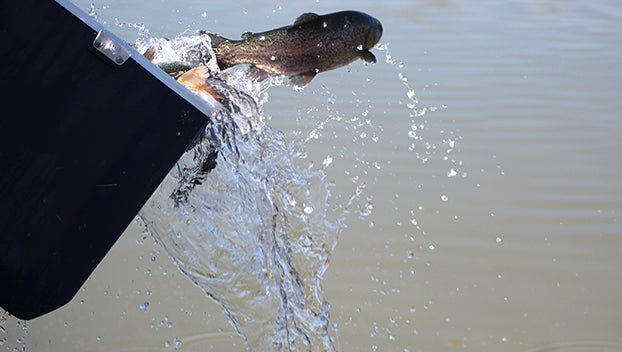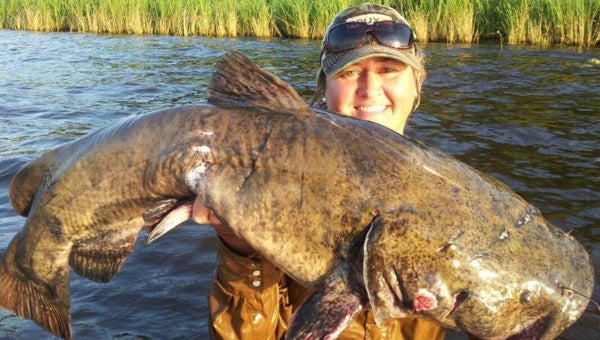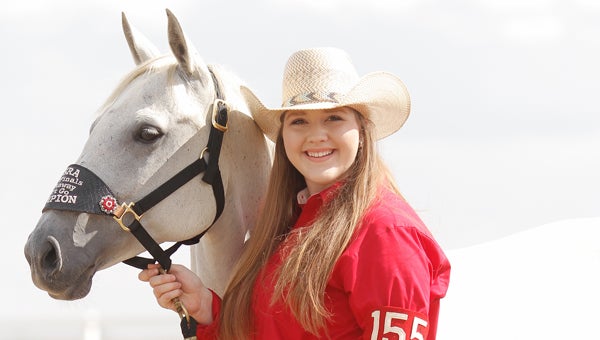Adams County could be facing huge pig problem in the future
Published 12:01 am Sunday, May 15, 2011

Wild hogs are becoming more numerous not just in Adams County, but all over the country — and the problem is difficult to deal with. (Submitted photo)
NATCHEZ — There is a growing problem in Adams County and as each new wild piglet is born the problem continues to grow.
Adams County is being overrun by a growing number of wild pigs, and Adams County 4-H Director David Carter said the problem is not just a local one and it is not getting better.
“First of all, it’s not a localized problem in Natchez, it’s a national crisis and it’s definitely getting worse,” Carter said.
“Their reproductive habits are very intense, their destruction is very intense and their rate of spreading is very intense.”
Carter said the pigs reproduce approximately three times a year and just one pig can produce almost 20 a year.
“Five or six pigs, in just a few years can lead to a few thousand,” Carter said.
“It’s something that is getting worse,” Carter said. “Five or six years ago, it wasn’t half this bad.”
Another reason the pig population continues to expand is the pigs can survive in almost any habitat, and most of the species migrate a lot, Carter said.
Also, the pigs have no natural predators in the area, St. Catherine Creek Wildlife Refuge Manager Bob Strader said.
Strader said that the pigs become sexually mature after approximately 9 months, and to attempt to control the pig population it will take a big effort from hunters and trappers.
“The only way (to control them) is through fairly aggressive hunting and trapping,” Strader said. “But that is hard because of a combination of things. They are really smart. If you put too much pressure on them (with hunting), they become nocturnal.”
If you trap them, you have to kill them, because if they get trapped (and you let them go), you can’t trap them again.”
Carter also said that hunting is the best way to attempt to control the population.
“Unfortunately, there are not a whole lot of control methods,” Carter said. “You can hunt them with dogs, and shooting is legal any time of year. There are very few restrictions on hunting; it’s promoted almost.”
Carter said local land owners are currently hunting as much as they can, but the problem is they can not just kill a few of them to solve the problem.
“To control it, you have to move 60 to 70 percent of the population,” Carter said.
When a large pig population takes over an area, it causes several different problems.
The wild pigs compete with native wildlife for food and land, and the competition is very aggressive, Carter said.
Strader said that the pigs usually become the predominant animal in the wild.
Also, the wild pigs feed on crops and destroy farmland and forestry land.
“They will go right down a row and eat all (of a farmer’s) crops,” Strader said. “They’ll eat (all of the) corn, rice and millet.”
Strader said the wild pigs cause problems on the wildlife refuge by rooting up roads and levees, causing damage to the infrastructure.
Carter said the pigs carry a lot of diseases, and often they will cause crops to be recalled because of contamination caused by wild pigs.
Both Strader and Carter said the hogs are not much of a threat to residential areas even with river flooding spreading out the populations. They said they have not heard of instances where the pigs have been seen in urban areas.
“I’d be surprised if they got in residential areas,” Strader said. “But if they did, they would root up yards and flower beds. There would have to be food sources and they are very susceptible to disturbances, so I would be surprised if they got in urban areas.”
If people find pigs on their land, they are pretty much on their own in terms of removing them, Carter said.
“Unfortunately, it’s kind of your personal problem (if you have pigs on your land),” Carter said. “Hunters can come hunt them, but there are no government agencies that will come trap them.”
The pigs are not very aggressive and will not attack people unless they are cornered or injured, Strader said.
Carter said cooperation between neighbors and hunting clubs is one of the best ways to combat the overpopulation.
“Neighbors with significant problems should organize themselves and come up with a plan,” Carter said.
If several different people unify to try to control the population, they might have some success, Carter said.
Strader said that Russian boars were originally brought to the area and released as a recreational resource. Since then, people have released regular domesticated pigs that have bred with the boars. With their reproductive habits, they quickly spread. All of that has combined to create large populations throughout the Southeast.
According to the Mississippi Department of Wildlife and Fisheries, “Wild hogs may be hunted, taken, killed, chased or pursued on private lands during daylight and nighttime hours throughout the year with no firearm restrictions. Wild hogs may also be hunted, taken, killed, chased or pursued on private lands with dogs, except during the spring turkey season.”





